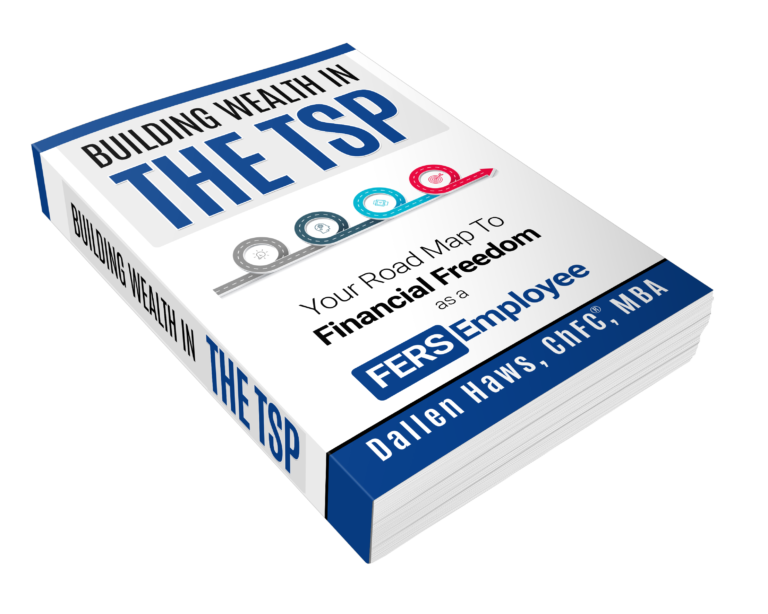A couple weeks ago I wrote an article about some of the big concerns that come with taking money out of your TSP to pay off your home. In response to that article, someone asked a great follow up question. They wondered,for those folks that might be a little younger in their career, or at least not retired, does it make sense to pay down a mortgage faster or invest more in the TSP? This is a great question and one that can make a huge impact over a career and lifetime.
Here are some of the things to consider.
5% In Your TSP
The first thing I would do, before anything else, is contribute at least 5% of my salary to the TSP. This maxes out your agency’s matching contributions and doesn’t leave any money on the table. Once this is in place, I would move on to the next steps.
Emergency Fund
One of the foundations of a strong financial life is to have something for a rainy day. Something that is not used for vacation or christmas but is there for true emergencies. Generally, this emergency fund should be fully funded and ready to go before someone considers paying off the house early or investing more in their TSP. The amount will depend on your personal circumstances but many people recommend enough to cover 3 months to a year of expenses.
This emergency fund does two things. First, it gives you a financial buffer which frankly, just feels really good to have. Second, when an emergency does come your way, you have funds available so that you don’t have to dip into your investments or take on higher-interest debt.
Retirement Planning
The next thing I would prioritize is retirement planning. This means giving serious thought to how much money you will need in retirement and contributing to your TSP accordingly. Now I know that it can be very difficult to know exactly how much you will need in retirement and even harder to know how much you should save to get you there. There are a lot of unknowns that we simply don’t have the answers to. However, a great place to start is to figure out how much fixed income (pension income, social security ect) you’ll have in retirement and then how much income you’ll need from your investments every month to fill any gap that you may have. From there, it can be a lot easier to calculate how big your nest egg has to be to provide that amount of income over a retirement.
Mortgage
At this point, once all these other things are taken care of, I would start paying down your mortgage early. I put this after retirement funding for a couple of reasons. First, it is often much easier to retire if you have retirement savings but still have a mortgage. It can be more difficult to retire if you have little savings but no mortgage.
But I’ll be honest, I am really trying to simplify this situation into a step by step process. In real life, the best answer may be a little different. Some of the things that might make reality a little sticker is your mortgage interest rate, your return on your retirement investment, your tax bracket, your home value, and whether you are investing in the traditional or Roth TSP. Not to mention that tax law will probably change over time. Right now, not too many people can take a deduction for their mortgage interest because the standard deduction is so high. But overtime, tax laws will change and the best solution for you will often change as well.
As a financial planner, I love it when clients are able to pay off their mortgages early. In general, it is a great thing. Just make sure you are not ignoring the rest of your financial situation just to get rid of a monthly mortgage payment. The best solution will take into account all the other details of your life as well including your retirement goals. But the good news is that because you are reading this article, you are thinking and planning for your future. That is the first step needed in making the best decision for you planning for an incredible retirement.


